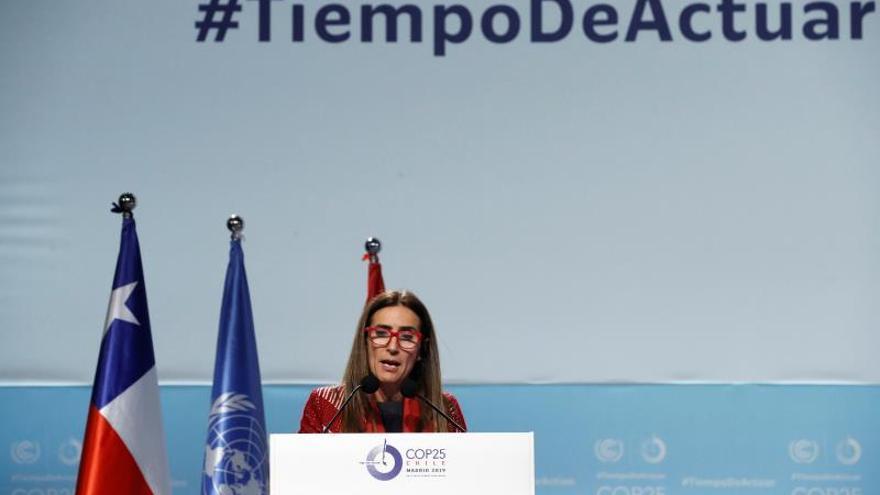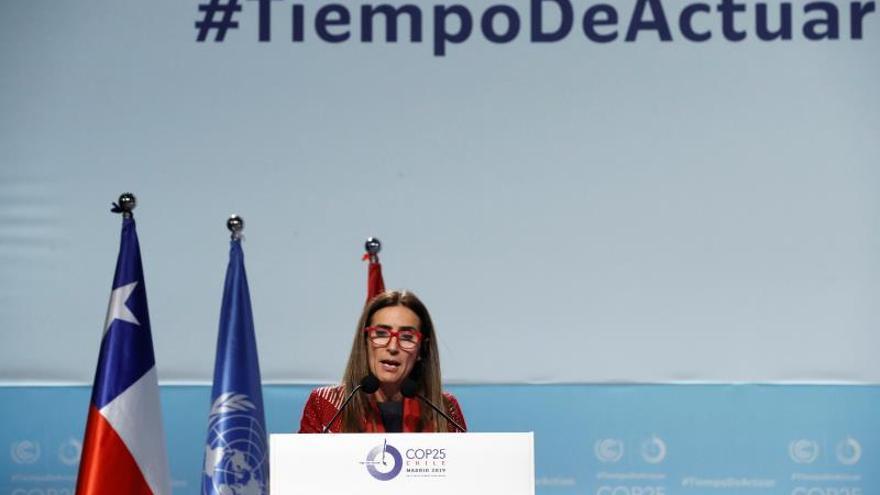The summit aligns the climate emergency with science and social demand


The climate summit in Madrid has reached an agreement in the discount time that aligns the political action to combat the climatic emergency with the scientific evidence that warns that the current rate of emission reduction is not enough and with the growing and increasingly Sound social demand.
The agreement approved today in Madrid commits countries to revise upwards, in 2020, their commitments to reduce greenhouse gas emissions (the so-called National Determined Contributions), a commitment to greater ambition that had become the challenge Main appointment.
Two weeks of negotiations in the framework of a Conference in which, in parallel, numerous agreements have been enlightened and some strategic alliances have been reinforced to combat a global emergency.
Two weeks also in which the focus has been diverted many days towards some leaders who were not involved in the negotiation: the Swedish Greta Thunberg, the former US vice president Al Gore or the actor Harrison Ford.
Thus, the Alliance for Climate Action launched by the UN Secretary General, Antonio Guterres, at the New York summit in September, has grown in Madrid and now has 73 countries committed to increasing their climate ambition in 2020 and achieving neutrality in carbon in 2050.
Face and cross, because that alliance has not joined any of the most polluting countries on the planet (neither the United States, nor China nor Russia), nor has it exceeded the figure of 100 countries that Chile had intended to reach in Madrid, although 400 cities around the world and almost 800 large companies have joined.
Fifteen days after the entry into force of the Paris Agreement, the Madrid summit (COP25) seemed like a "transition" event, because the only point pending to develop from this global pact is Article 6 that should regulate the carbon market and order the trading of emission rights in a single system for everyone.
But the differences between countries are abysmal, and despite the advances that have been made in Madrid, the consensus is still far away and that solution has been postponed again, which does not prevent the Paris Agreement from entering into force.
A transition summit ?; It seemed, but it was impossible that it should be so. Because they are 25 years, a quarter of a century of "cops", and because the pressure had increased during the last months in an exponential way.
Scientific pressure, because the reports are increasingly forceful and warn that the Paris Agreement cannot be complied with at the current rate and curb global warming; and social pressure, because there has never been such a resounding and sound citizen mobilization before.
It is the young people who lead that cry with a claim that is clamorous: we must move from rhetoric to action; From words to deeds.
Recognized as the "engine" of climate ambition, the EU has played a leading role in this event, due to the comings and goings of the new president of the Commission, Ursula von der Leyen, and many of its commissioners.
And because coinciding with the Madrid meeting, Brussels has launched the European Green Pact that reflects the commitments to the fight against climate change and the commitment to make Europe the first continent to achieve carbon neutrality - in the year 2050-.
But also because the last European Council, which has been held in coincidence with the summit, has made clear the reluctance of some eastern countries, still highly dependent on coal, to achieve that neutrality challenge and because Poland's refusal to join the European agreement makes it "non-binding".
It was going to be "transitional" and it wasn't; but what is certain is that the 26th conference (COP26) that will be held in Glasgow next December will not be transitional.
The nearly two hundred countries that make up the Conference of the Parties to the United Nations Framework Convention on Climate Change will then have to verify who has done and who does not owe them and revised upwards their commitments to reduce the emissions of gases responsible for change climate.
The process for the United States to definitively exit the Paris Agreement will then be concluded, although before the Trump order can be completed there are elections in the country; and the summit, which was to organize an EU country, is played "outside", because "brexit" will foreseeably be a fact.
Raul Married
. (tagsToTranslate) summit (t) emergency (t) climate (t) science (t) demand
Source link









